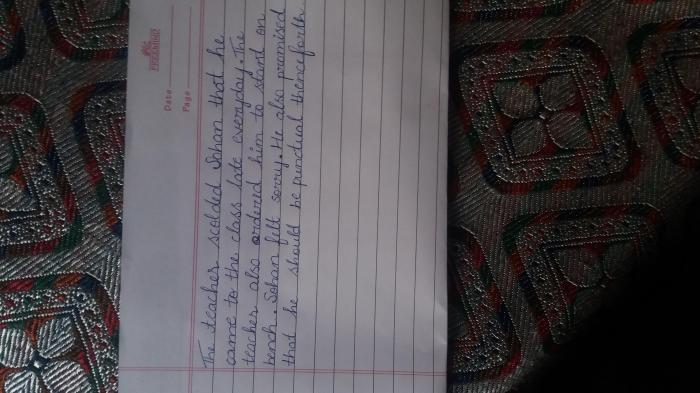La clase __________tarde todos los días. comencé comenza comienza comienzan – La clase __________ tarde todos los días. Comencé, comenza, comienza, comienzan – the verb “comenzar” holds a prominent place in Spanish vocabulary, serving as the gateway to countless actions and endeavors. This guide delves into the intricacies of “comenzar,” exploring its conjugations, usage, synonyms, antonyms, and cultural significance, providing a comprehensive understanding of this essential verb.
From its humble beginnings to its widespread use in everyday conversations, “comenzar” plays a pivotal role in shaping the narrative of our lives. Whether embarking on a new journey or simply initiating a daily routine, “comenzar” marks the threshold of countless experiences.
Conjugations of the Verb ‘comenzar’

The verb ‘comenzar’ means ‘to begin’ or ‘to start’ in English. It is an irregular verb, meaning that its conjugations do not follow the regular patterns of most Spanish verbs. The following table shows the conjugations of ‘comenzar’ in the present tense for all persons and numbers:
| Person | Singular | Plural |
|---|---|---|
| Yo | comienzo | comenzamos |
| Tú | comienzas | comenzáis |
| Él/Ella/Usted | comienza | comienzan |
| Nosotros/Nosotras | comenzamos | comenzamos |
| Vosotros/Vosotras | comenzáis | comenzáis |
| Ellos/Ellas/Ustedes | comienzan | comienzan |
Usage of ‘comenzar’
The verb ‘comenzar’ can be used in a variety of ways. It can be used to describe the beginning of an action, an event, or a state of being. It can also be used to introduce a new topic or idea.
Here are some examples of sentences using ‘comenzar’ in different contexts:
- Comencé a estudiar español hace dos años.
- El concierto comienza a las 8:00 pm.
- La clase comienza a las 9:00 am.
- Comencemos con el primer capítulo.
- Comenzaré a trabajar en el proyecto mañana.
Synonyms of ‘comenzar’
There are a number of synonyms for the verb ‘comenzar’. Some of the most common synonyms include:
- empezar
- iniciar
- principiar
- arrancar
- echar a andar
These synonyms all have slightly different meanings, but they can all be used to mean ‘to begin’ or ‘to start’.
Antonyms of ‘comenzar’: La Clase __________tarde Todos Los Días. Comencé Comenza Comienza Comienzan

The antonyms of the verb ‘comenzar’ are ‘terminar’ and ‘acabar’. These verbs mean ‘to end’ or ‘to finish’.
Here are some examples of sentences using the antonyms of ‘comenzar’:
- Terminé de estudiar español hace dos años.
- El concierto terminó a las 10:00 pm.
- La clase terminó a las 10:00 am.
- Terminemos con el último capítulo.
- Terminaré de trabajar en el proyecto mañana.
Phrases with ‘comenzar’
There are a number of common phrases that use the verb ‘comenzar’. Some of the most common phrases include:
- Comenzar de cero
- Comenzar con buen pie
- Comenzar una nueva vida
- Comenzar un nuevo capítulo
- Comenzar una nueva etapa
These phrases all have different meanings, but they all use the verb ‘comenzar’ to mean ‘to begin’ or ‘to start’.
Cultural Significance of ‘comenzar’

The verb ‘comenzar’ is a very important verb in Spanish-speaking cultures. It is used in a variety of contexts, from everyday conversation to formal speeches. It is also used in a number of proverbs and idioms.
One of the most common proverbs that uses the verb ‘comenzar’ is “El que bien comienza, bien acaba”. This proverb means that “A good beginning makes a good ending”. This proverb is often used to encourage people to start their projects or tasks well, because it is believed that a good start will lead to a good finish.
FAQ Explained
What are the different conjugations of “comenzar”?
The conjugations of “comenzar” in the present tense are: yo comienzo, tú comienzas, él/ella/usted comienza, nosotros comenzamos, vosotros comenzáis, ellos/ellas/ustedes comienzan.
How do I use “comenzar” in a sentence?
“Comenzar” can be used to indicate the start of an action, event, or state. For example, “Comencé a estudiar español el año pasado” (I started studying Spanish last year).
What are some synonyms for “comenzar”?
Some synonyms for “comenzar” include “iniciar,” “empezar,” and “principiar.”
What are some antonyms for “comenzar”?
Some antonyms for “comenzar” include “terminar,” “acabar,” and “finalizar.”
What are some common phrases that use “comenzar”?
Some common phrases that use “comenzar” include “comenzar de nuevo” (to start over), “comenzar una nueva vida” (to start a new life), and “comenzar a trabajar” (to start working).